We should care about jaguars, not Jaguars.
The real victims of the culture war.
A gentle dusting of snow last week was a welcome reminder of the approaching winter, as if the world was nudging me to slow down, take it easy, have a lie in. Cold weather tells nature what time it is. That includes us. It’s time to sleep, it says, with a blueing of ice and frosting of breath.
I’ve been reading and thinking a lot about the way we use the internet. I recently listened to the exceptional Things Fell Apart by Jon Ronson, a series of audio documentaries about the culture wars that have plagued America for the last few decades. From the Satanic panic in the 1980s to the conspiracy theories and pseudoscience surrounding Covid, it seems that people have always been varying kinds of stupid. But social media, with its ability to give a loud voice to everyone I never wanted to hear from in the first place, has brought that stupidity to the forefront of mainstream culture.
Context collapse is a term I only came across this year. It neatly summarises the incredible jumps to conclusions that people make when they read only the headline of an article, or a tweet or status or whatever just happened to pop up on their feed. I saw it just recently when an author on Substack posted a screenshot of another social media post which paired a news story with an entirely unrelated photo of four men. The dozens of comments then passed judgement on the men in the photo even though they had nothing to do with the story, because apparently nobody can fact check basic things for themselves before wading in to plant their flag in the culture wars. It’s no wonder that misinformation spreads so easily.
A new report from Ofcom reveals adults in the UK are spending an average of 4 hours and 20 minutes each day online across smartphones, tablets and computers1 - an increase of an entire hour from 2023. Consider that a lot of this time will be spent on X, formerly known as Twitter. With Elon Musk’s appointment to the US Government, his social media platform is now one big propaganda machine filled with Russian bots and idiots who believe everything they see without question.
Throw into the mix the ‘enshittification’ of crumbling online services as they try to become profitable, and how nearly every website is borderline unusable without an adblocker, I am finding that the internet is becoming an increasingly hostile place and has made me seek out ways I can reduce my time on it, near it, with it. Turns out that’s quite difficult as my job is so digital, but I’ve managed to go a few blissful weeks unaware of whatever nonsense has stirred the digital pot.
That all changed when I had to log into LinkedIn for a work thing the other day and found everyone absolutely losing their shit about the Jaguar rebrand.
Right-wing media had a field day recently when luxury sports car company Jaguar unveiled a rebrand that featured black people. But what interested me isn’t the way the ad says nothing about cars, or gives the overall vibe of a flavoured lube company, but how the iconic image of the jaguar itself is nowhere to be seen.
Jaguar has owed its brand to the third biggest cat in the world (and the biggest in the Americas) for decades. Historic American civilisations like the Aztecs and the Mayans featured jaguars prominently in their culture. The Mayans worshipped them as gods, and these deadly night prowlers were deeply associated with the underworld.
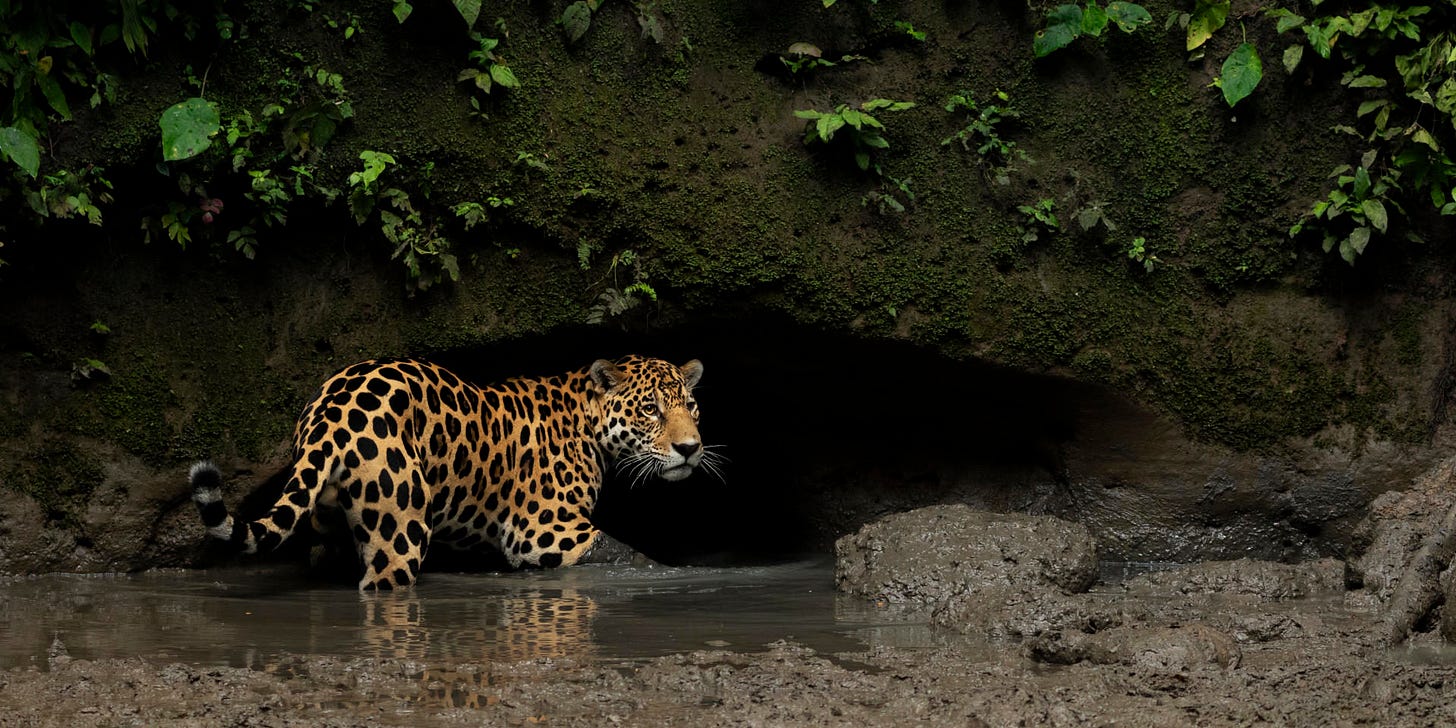
But they also traded and slaughtered them, according to a 2018 study2, suggesting that ever since humans turned up on the scene jaguars have had a rough time.
Top predators in the food chain, jaguars are vital species in the ecosystems of the American rainforests. But they are also threatened by deforestation, agriculture and urbanisation fragmenting their habitats, climate change, and a thriving illegal wildlife trade.
Conservation efforts in Mexico seem to be having a positive effect, with numbers steadily increasing in the Yucatán Peninsula3. But most jaguars are holding out in the remotest parts of Brazil’s Amazon, a biosphere not only vital to the local region but to the entire planet, with hundreds of billions of tonnes of carbon locked away in its rainforests.
Although great strides have been made in reducing deforestation in Brazil4, mainly due to President Lula’s environmental ambitions in stark contrast to his predecessor, enormous swathes are still demolished every day. Some parts of the Amazon have been so badly trashed they are now emitting more carbon than they absorb.5
Halting deforestation - driven significantly by the beef industry clearing land to rear cattle - is vital in the fight to mitigate the worst impacts of climate change but also to preserve the home of our planet’s magnificent big cats.
And this is why the the removal of the jaguar from the car company’s logo is of interest.
There’s a deep irony in a luxury sports car company branding itself with an animal it is doing more harm to than good with the massive amount of carbon emissions it produces, but part of me can’t help but think the disappearance of the jaguar from Jaguar’s logo is a symbolic nail in the coffin of our relationship with the natural world.
One of the most memorable WWF campaigns in recent years is a World Without Nature, where the marketing team removed images of animals from famous logos of companies and sports teams.
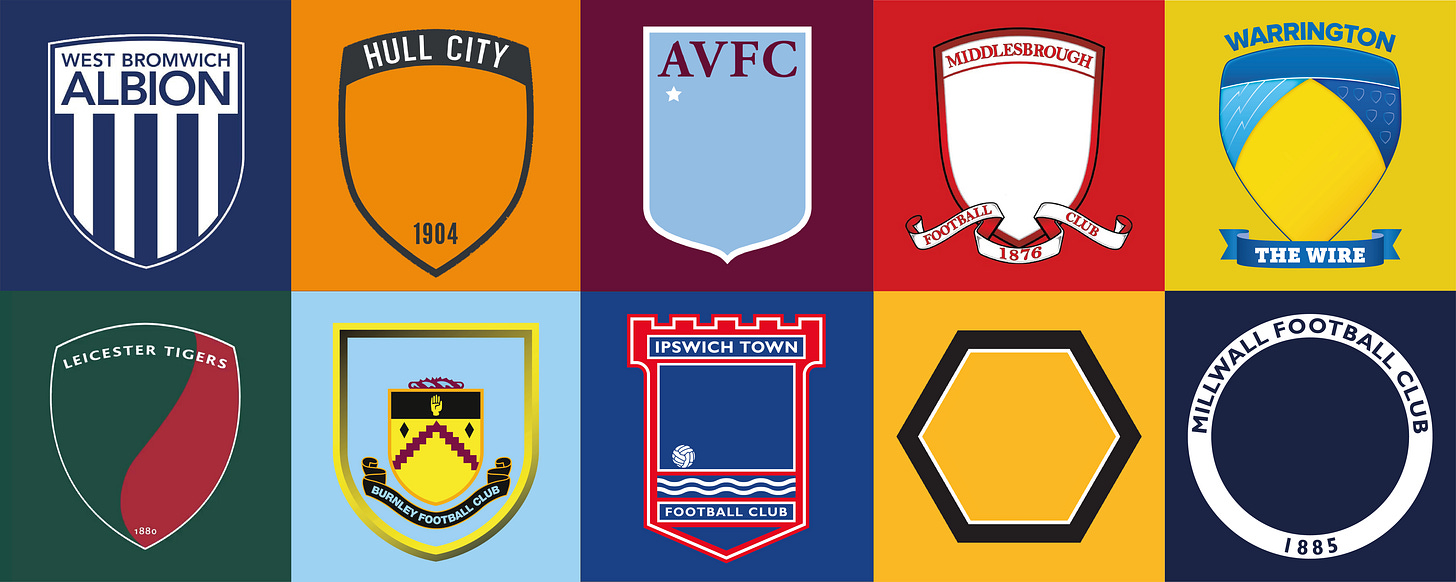
It’s a painful realisation just how much wildlife is deeply embedded in the psyche of our culture. Even in the identities of companies committed to the extraction economy that is pushing nature to the brink.
How different could our world be if the likes of Penguin, Fox, Puma, Dove, Lynx and John Deere invested even a fraction of their eye-watering profits into preserving and restoring the habitats of their namesakes instead of destroying them? How different could our world be if Jeff Bezos spent his infinite pocket money on protecting, I don’t know, the Amazon instead of on phallic carbon bombing vanity projects?
This was an opportunity for Jaguar to double down on its jaguar imagery, commit to a revolutionary circular model of sustainability and decarbonisation, fill the ad with imagery of the rainforests and partner with jaguar conservation charities to cement its association with the animal it owes its legacy to. Instead, it wiped all trace of the natural world from its brand.
In 2017, author Robert MacFarlane and illustrator Jackie Morris collaborated on the marvellous book The Lost Words which featured poetry around the nature-related terms that have been removed from children’s dictionaries. ‘Acorn’, ‘bluebell’, ‘kingfisher’, and ‘wren’ have all been replaced by words like ‘broadband’ and ‘chatroom’ over the last decade, in a steady purging of nature from our culture.
That is the culture war we should be focusing on. Not on the inane noise of what bathroom we’re allowed to use6, or whether being told to wear a mask in a deadly pandemic is an infringement on our human rights7, but on the widening gulf between homo sapiens and its own natural environment.
I ended my session on the internet as soon as a particularly nasty article came up that was apoplectic about Jaguar’s creative director being both gay and pro-Black Lives Matter. If the real jaguar ever fades to nothing more than a memory, it will do so against the rising chorus of millions of angry voices shouting at each other about a TV advert, all while the rainforest burns.
So I’m going to slink away from the internet again for a bit. Shut out the noise of idiocy and listen to the seasons instead, putting the internet into a winter hibernation. I’m going to do what I can to help the jaguar, roaming the jungles of the Americas, guarding the underworld.
And you can too, by:
Reducing the amount of meat in your diet;
Purchasing furniture and wood products second-hand;
Purchasing Rainforest Alliance-certified food;
Better still, eating locally grown food; and
Supporting organisations like The Rainforest Trust and some of the other groups mentioned in this article who are working to protect jaguar habitats.



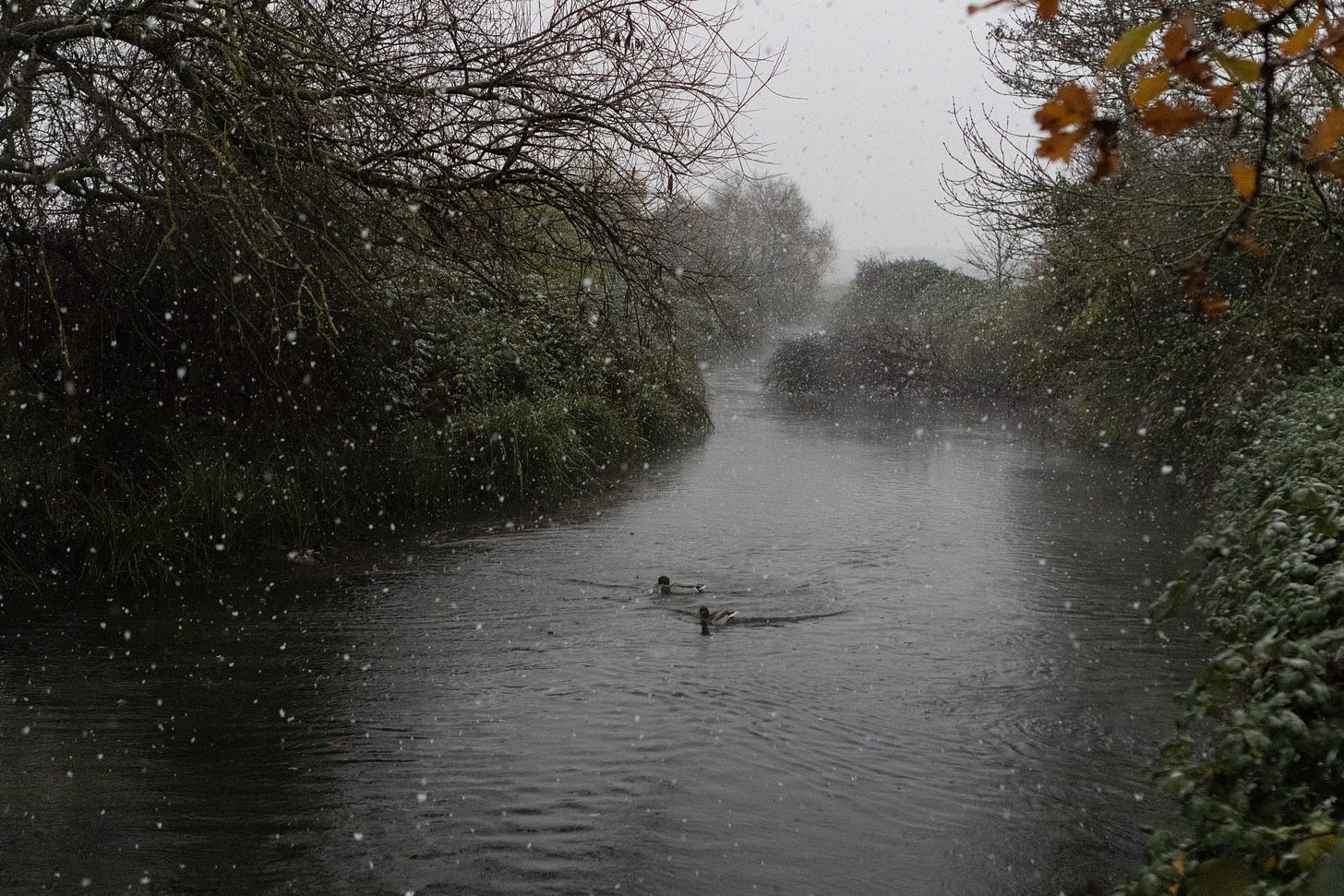
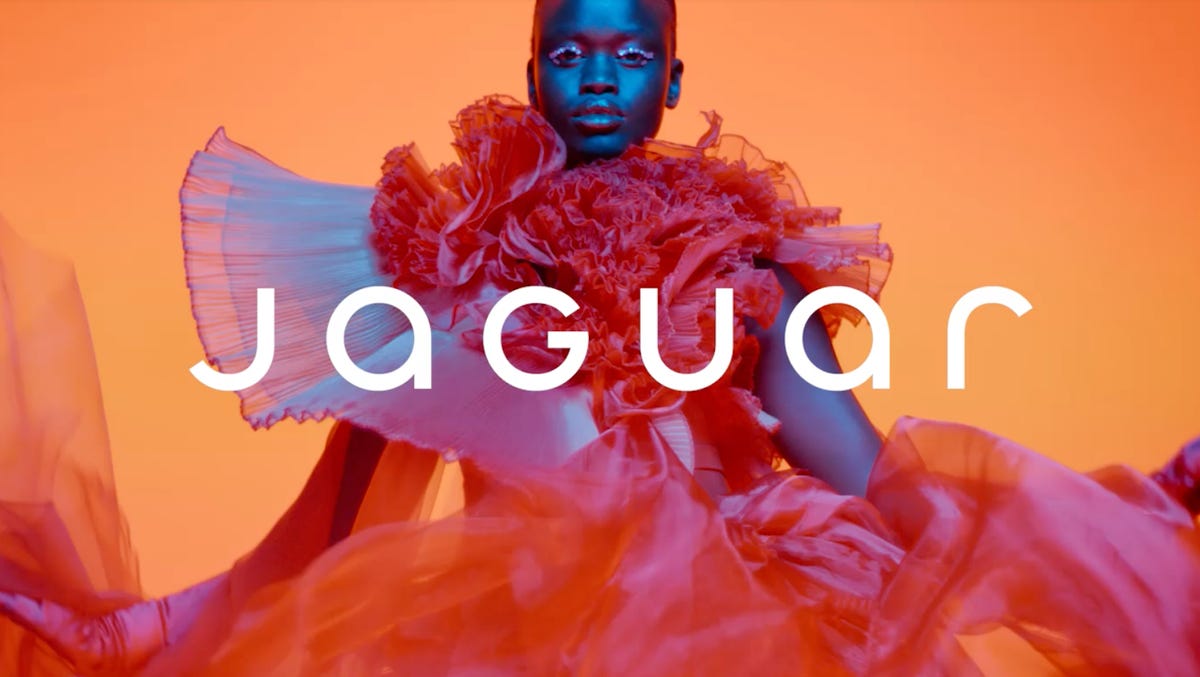
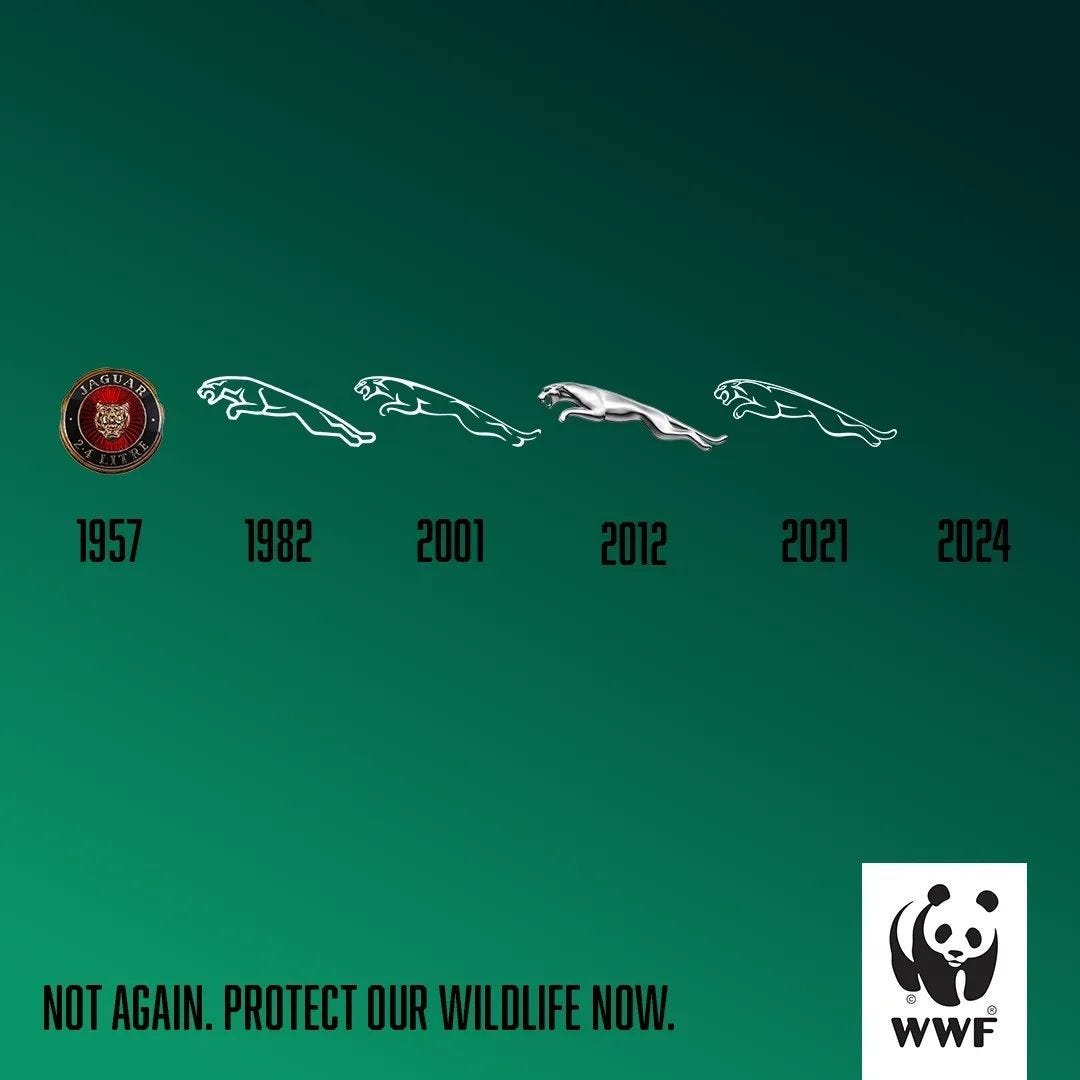
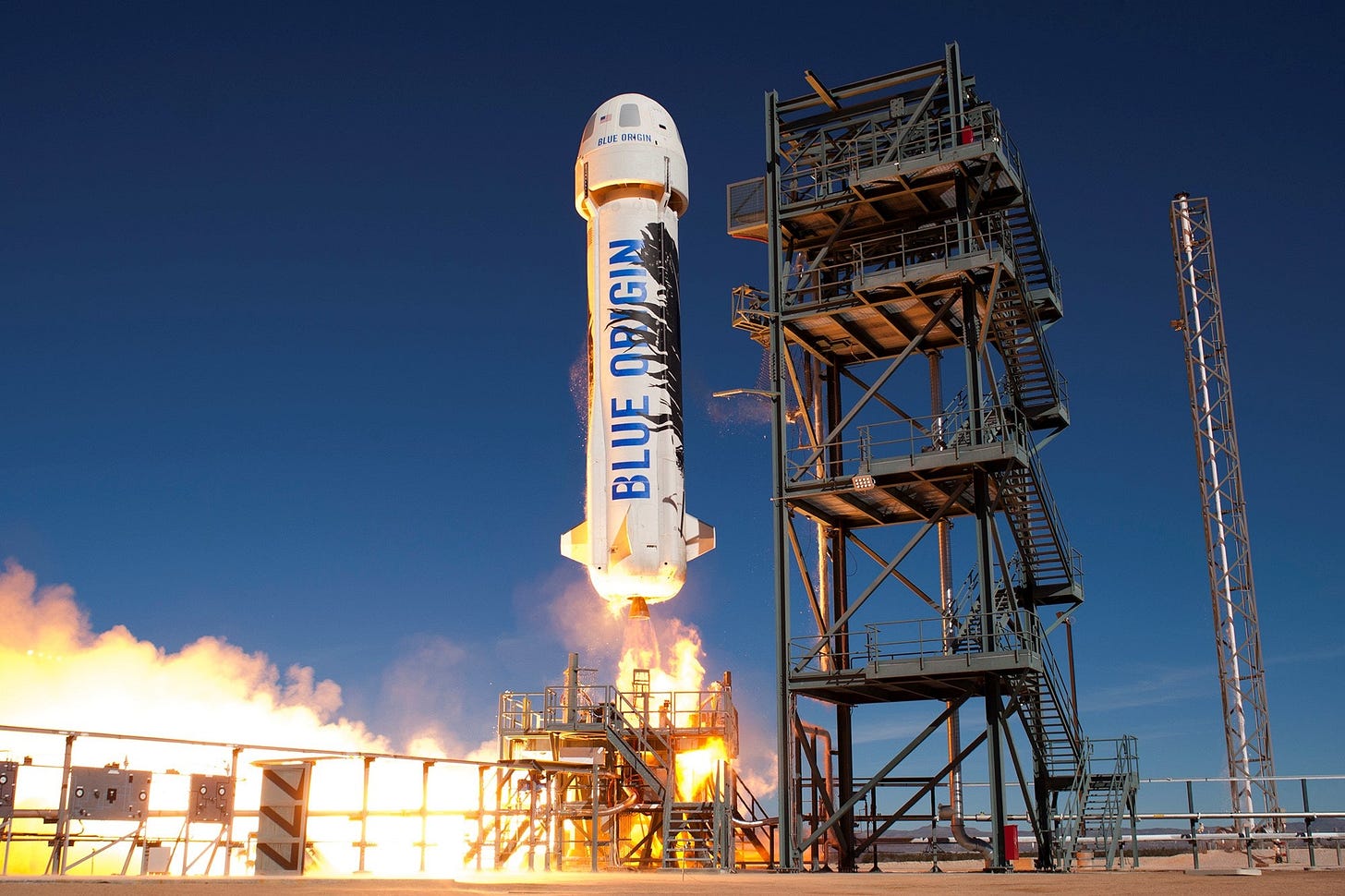
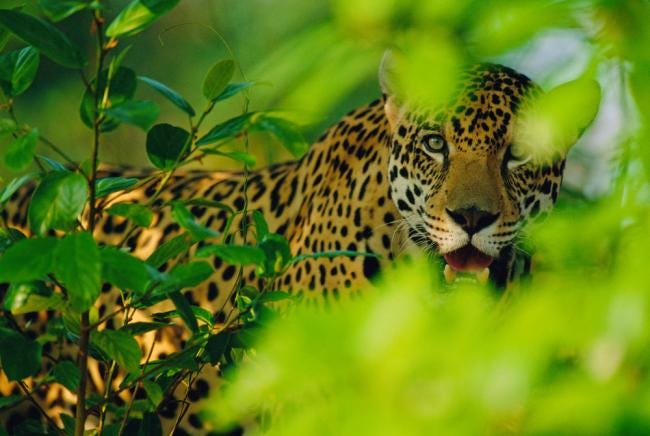
Yes. All of that. That we should even be getting excited about yet another unnecessary luxury item as the collapse looms. Talk about fiddling while Rome burns!
I have unfollowed most of my connections on linkedin, until I've created a network of people working mostly in conservation or climate science. Yet I'd rather follow them elsewhere and delete my account.